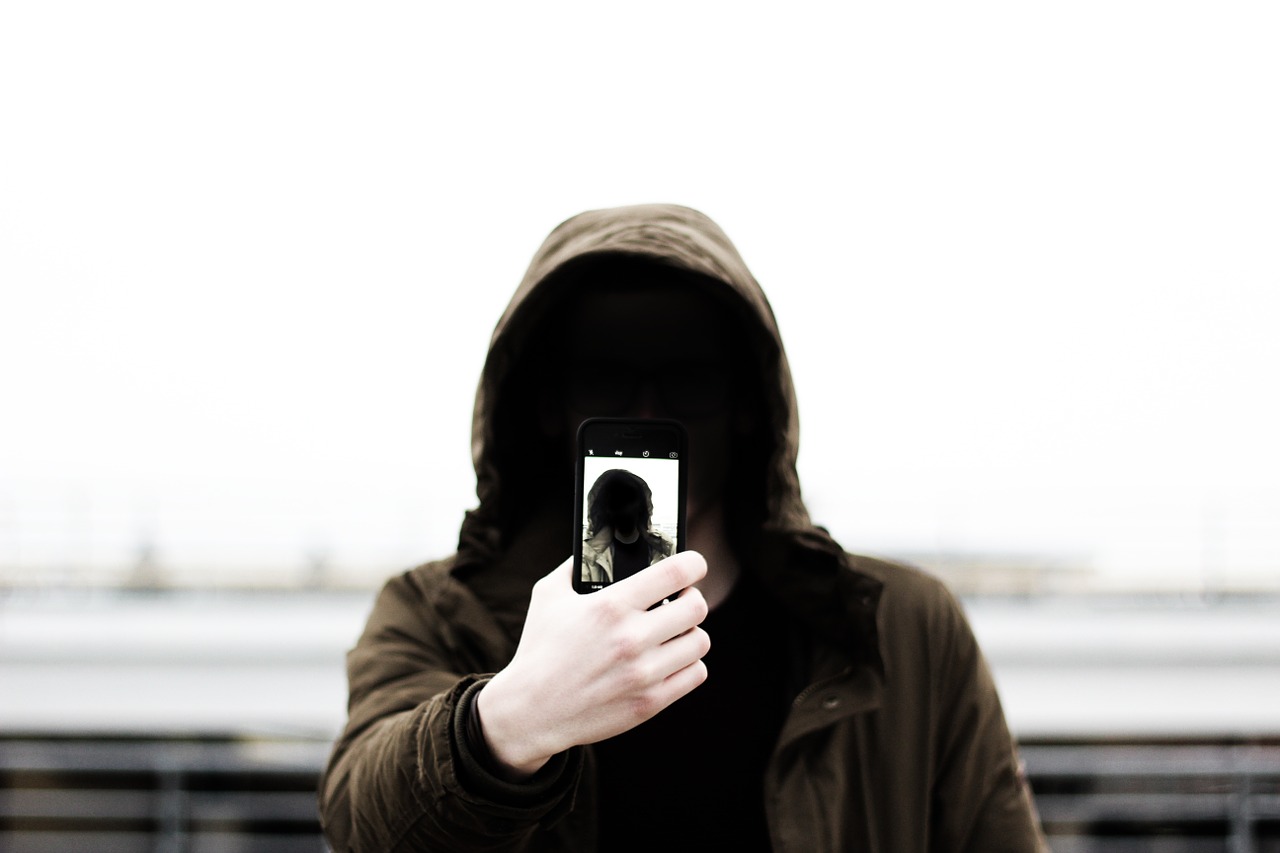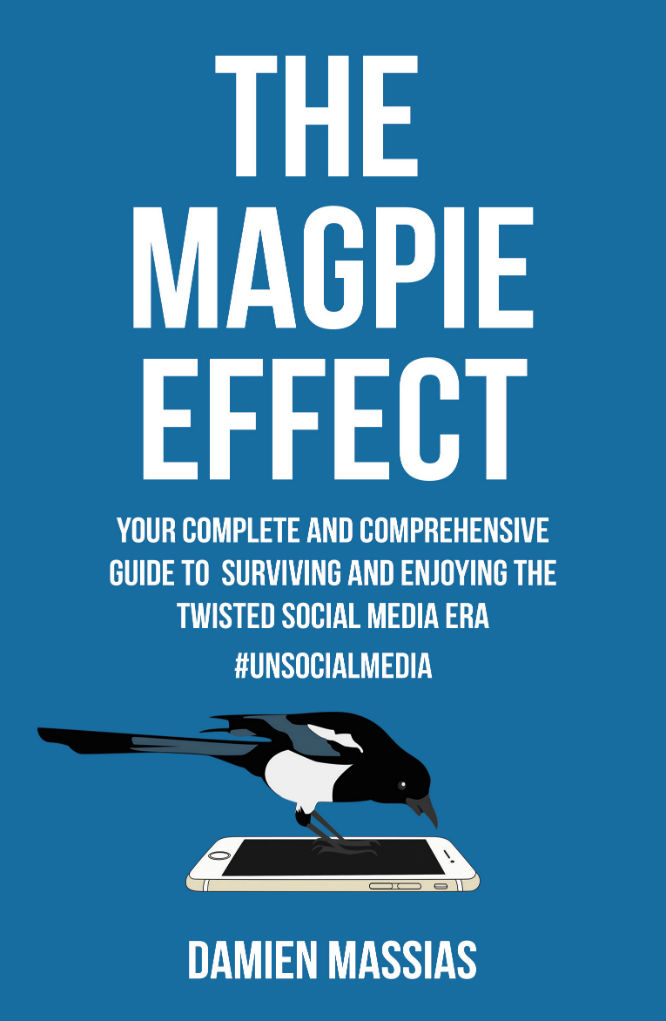
There’s nothing inherently wrong with social media. Social media, in many ways, is magic. It’s a lightning fast way of sharing content with both people we love and strangers alike—and it opens the door to connecting with people we may have never connected with otherwise. That being said, social media, like many good things, can hurt us if we don’t use it in the way it was designed to be used… just like eating sugar—a treat that makes life sweeter—can make us sick if not consumed how it should be (in moderation).
So how exactly do we misuse social media? By relying on it to fill voids in our lives it was never designed to fill. Social media was created as a way to socialise—not validate every detail of our lives. As easy as it is to fall down the social media rabbit hole that leads to despair, it’s just as easy to pull yourself out of it. Picked from my book, here are 10 examples where social media keeps us down. Use this knowledge to fix your relationship with social media, and witness how your life blossoms.
Ready?
1) We waste too much time on social media. Now with the new Screen Time tool, we can see how many hours we spend scrolling Instagram each week… and the results aren’t too pretty. Sure, there’s nothing wrong with a daily scroll to see what your friends are up to, but where do we draw the line? Is one hour a day of numbly scrolling too much? Two hours? That’s fourteen hours a week, 56 hours a month, 672 hours a year, which amounts to 28 full, 24-hour days. How many days will that be in your lifetime? Is that what you want to remember when you look back on your life? There will always be an endless amount of things to scroll through on social media… but that doesn’t mean you must scroll through it all.
2) Over-sexualisation is rampant on social media. Why is that bad? It’s fostering unhealthy relationships with and expectations about dating and sex. Social media takes the objectification of human beings to a whole new level—now we don’t only objectify each other, we have a tangible value system (likes!) to rate ourselves as those objects, or perhaps more accurately, products. We don’t work out to feel good, we work out to look good and we make sure to show it to the whole wide world. Then we wonder why we struggle when it comes to dating and why we seem to always attract the wrong people who seem to only be interesting in one thing… Dating is already hard enough as we explore our own identities as we move through life. Throw your online identity into the mix, and it gets even more complicated. Are we humans or handles?

3) Nobody likes a narcissist. And yet, trends on social media seems to encourage the narcissism in all of us. Selfies are one of those strange trends. Though posting one every once in a while when we’re feeling ourselves provides a little confidence boost, posting them daily—or worse, hourly—indicates a deep-seated problem. You’re obviously not posting them so much to remind everyone of what you look like… so why are you posting them?
4) On social media, we tend to play the game that is never any fun: Constant Comparison. Whether consciously or unconsciously, the more we’re on social media, the more we’re comparing ourselves with others. It’s only normal. We measure our lives against theirs—or what we think is theirs. But the truth is what people post on social media is a carefully curated, usually highly positive representation of what their life is really like. It only shows a piece. We forget this and end up holding ourselves to unrealistic standards because we think, “Well, he’s doing this” or “Well, she has it all.” The game of comparison leads to us having unattainable (and often misplaced) goals… about everything—beauty, love, work, possessions, priorities.
5) Social media is guilty of enabling micro-cheating. The definition of cheating varies from person to person, but there’s no question that social media destabilizes relationships that could otherwise be very healthy and wonderful. Unfortunately, men are typically more prone to this than women. For example, they follow countless accounts of women, like and comment on their often very sexy photos, all the while being in a relationship.
6) Social media is a fast track to an identity crisis. Many of us end up having two lives: our real one and the one we would like to have, which we document in cyberspace. The problem here is the more energy we devote to our cyber lives, the less we devote to our real lives, which leaves our life more empty and meaningless. When we’re caught up in the life we live online, it’s much harder to face who we really are and what we do in the real world. And what kind of life is that?
7) We confuse friends with followers. Social media often gives us the false belief that we have hundreds, maybe thousands, of friends. In reality, most of these “friends” are just people who aren’t invested enough to support us in the way real friends would. Our followers don’t really know us and we don’t really know them. Studies have shown that despite social media, as a society we are becoming more and more lonely.
8) Life becomes a constant chase for likes, attention, and validation. Too many of us work overtime to create content for the cultivation of cyber fame. But the hard truth is this: a like or a comment from a stranger means absolutely nothing. It is not a reflection on who we are as people, our purpose, or our growth. It is as meaningless as meaningless could be... especially when it’s a like or comment on a picture that was carefully crafted, maybe with a filter, from a certain angle, with professional lighting. Look at it this way: 3.5 billion likes happen per day worldwide… so they’re obviously don’t have much value. Why let them dictate your value?
9) Our relationship with social media is causing problems in the development of children. Without realising, we are already training our kids, nieces, and nephews to be self-conscious about the way they look. We have become worse than paparazzi but instead of harassing celebs, we are harassing the youth. And why wouldn't we? Of course, we love them, we want to capture as many good memories as possible. What many of us do not realise is that the side effect of doing so will probably be a costly one. If so many adults can become so engrossed about the way they look and their online identity, then imagine how much worse it could be for youngsters who have never known any other way to be.
10) Although research on the connection between social media and mental health is just beginning, the studies so far all reflect the same conclusion! More and more people see a drastic increase in anxiety, depression, lack of self-esteem and confidence linked with being on social media. The worst part is: most people do not even connect the dots. They know something is not quite right but they just can’t imagine that something as seemingly innocent as an app that they love (or are addicted to?) could cause something so severe. Unfortunately, these apps very well can.
Have you noticed any of these things manifest in your own life? If yes, it’s up to you to do something about it. What you make of your life is up to you, and you alone.

Words by Damien Massias, life coach and author of The Magpie Effect, available now.

